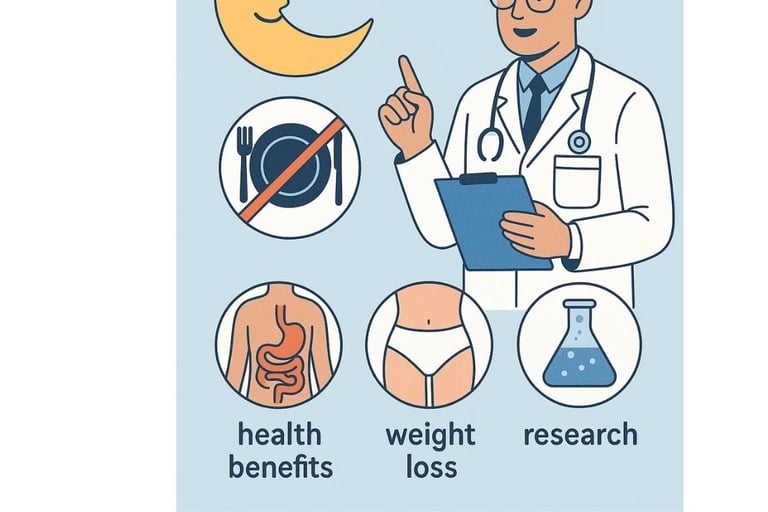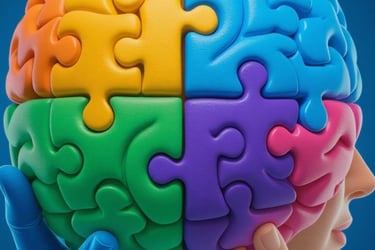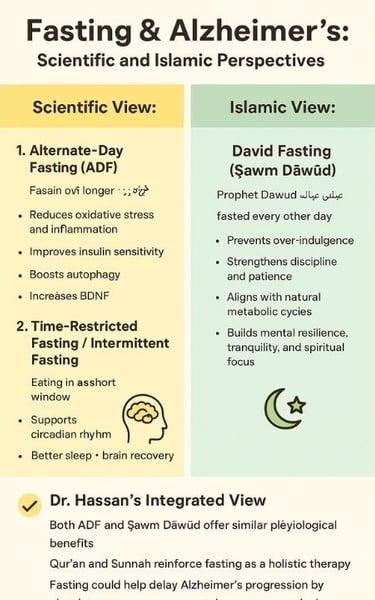
Health is a crown on the heads of the healthy that only the sick can see.

🧠🌙 📖 Why Alzheimer’s Hits Women Harder — and the Role of Fasting & the Qur’an
🧠🌙📖 Discover why Alzheimer’s disease affects women more severely and how fasting and the Qur’an may protect memory and brain health through science, faith, and holistic well-being.
FASTINGNERVOUS SYSTEM ISLAMIC
Dr Hassan Al Warraqi
9/27/20258 min read


🧠🌙 📖 Why Alzheimer’s Hits Women Harder — and the Role of Fasting & the Qur’an
🧠🌙📖 Discover why Alzheimer’s disease affects women more severely and how fasting and the Qur’an may protect memory and brain health through science, faith, and holistic well-being.
It's a worrying fact: Alzheimer's affects more women than men.
Around two-thirds of all people diagnosed with the disease are women.
This isn't just because women tend to live longer.
There are deeper reasons involving biology, genes, and lifestyle that can impact a woman's brain health.
The Numbers
* Women make up 66% of Alzheimer's patients.
* About 16% of women get dementia, compared to 11% of men.
* Currently, 5.8 million Americans are living with Alzheimer's.
* Women are twice as likely to get Alzheimer's than breast cancer.
Why the Higher Risk for Women?
Living Longer
The biggest risk for Alzheimer's is getting older.
Since women often live about 5-7 years longer than men, they're simply more likely to reach the age where Alzheimer's becomes a real threat. After 65, the risk doubles every five years.
Menopause and Hormone Changes
When women go through menopause, their estrogen levels drop a lot.
Estrogen is good for the brain because it helps with memory, protects brain cells, and keeps things running smoothly between them.
When estrogen decreases, it might speed up brain aging and make women more open to Alzheimer's.
The APOE-e4 Gene
There's a gene called APOE-e4 that's the strongest genetic risk.
Women carrying this gene are at a much higher risk compared to men with the same gene.
4. Brain Differences
Studies suggest that women might have:
* Quicker decline in brain function after being diagnosed.
* Different build-up of harmful proteins in the brain.
* Different kinds of inflammation in brain tissue.
5. Life Experiences
In the past, women often had:
* Less access to education.
* More responsibilities as caregivers, which can cause long-term stress.
* Higher rates of depression and worry.
How Engaging with the Quran Can Help Protect Brain Health
While women face increased Alzheimer's risk due to their biology, certain lifestyle changes can boost their brain's resilience.
For Muslims, engaging with the Quran can be very helpful because of the following.
Building Brainpower Through Memorization:
Memorizing the Quran is like a full workout for the brain.
It involves:
* Listening carefully.
* Understanding a new language (Arabic).
* Remembering verses.
* Reciting from memory.
This kind of mental workout helps the brain stay strong.
Reducing Stress and Calming the Brain
Listening to and reciting the Quran can:
* Lower stress hormone levels.
* Increase relaxing brain waves.
* Reduce inflammation.
* Calm down the nervous system.
Since long-term stress can speed up Alzheimer's, these calming benefits are great for women at risk.
Finding Strength in Faith
Having a strong faith can:
* Provide support from a community.
* Give a sense of purpose.
* Promote hope.
* Help manage emotions.
Since conditions like depression can increase the risk of dementia, spiritual well-being is very important.
Living a Brain-Healthy Lifestyle
Islamic teachings encourage habits that are good for the brain:
* Fasting helps clean up cells.
* Avoiding harmful substances reduces stress on the brain.
* Praying with others and being social fights loneliness.
* Learning and thinking keeps the brain active.
How to Protect Yourself
Here's what you can do:
Get Regular Exercise: Aim for 150 minutes of moderate activity each week.
Eat a Mediterranean Diet: Focus on fish, olive oil, fruits, and veggies.
Keep Your Brain Active: Read, learn new things, and challenge your mind.
Stay Social: Spend time with friends and family.
Get Good Sleep: Aim for 7-9 hours each night.
Manage Stress: Try meditation, prayer, or other relaxation methods.
Take Care of Your Heart: Keep your blood pressure and cholesterol in check.
Address Mental Health: Get help for depression or anxiety.
How the Quran Can Help
* Recite the Quran daily to exercise your brain.
* Join study groups to connect with others.
* Set goals for memorizing verses.
* Read and reflect on the Quran to reduce stress and connect with your faith.
Taking Care of Your Brain
For women, combining medical advice with spiritual practices like engaging with the Quran can be a good plan.
This approach can help with:
* Biological risks through lifestyle changes.
* Mental and emotional strength through faith.
* Social connections through community.
* Brainpower through learning and memorization.
In Conclusion: Taking Charge of Cognitive Health
Knowing why women are more likely to get Alzheimer's helps us take action. While we can't change our genes or hormones, we can make lifestyle choices that protect our brains.
Combining brain stimulation, stress reduction, and spiritual practices offers a strong defense for long-term brain health.
For Muslim women, using Quranic practices can be a meaningful way to care for their minds and bodies.
Fasting and Alzheimer's: What Science and Islam Say
Alzheimer’s is a scary disease that causes people to slowly lose their memory.
Women are more likely to get it, and things like getting older, hormone changes, and lifestyle can play a role.
Things like stress, inflammation, and problems with how the brain uses energy can make it worse.
Science on Fasting and Brain Health
Alternate-Day Fasting (ADF)
This means fasting every other day. Studies show it might:
* Lower stress and inflammation (which can harm the brain).
* Improve how the brain uses energy.
* Help clean out damaged proteins in the brain.
* Increase a substance that protects brain cells.
Time-Restricted Fasting (Intermittent Fasting):
This means eating all your meals within a certain window of time each day.
It can help with sleep and allow your brain to rest and recover.
Islam on Fasting
Prophet Dawud (peace be upon him) fasted every other day.
The benefits of this practice are similar to what scientists have that fasting:
* Helps avoid overeating.
* Builds self-control.
* Matches the body's natural rhythms.
* Builds mental and spiritual resilience.
The Overall View
Both alternate-day fasting and the fasting practiced by Prophet Dawud (peace be upon him) seem to have similar benefits for the body.
The Quran and Sunnah encourage fasting as something that benefits the whole person – body, mind, and spirit. Fasting might help slow down Alzheimer’s by:
* Cleaning out toxic proteins.
* Protecting brain cells.
* Lowering stress and worry.
* Bringing peace of mind.
In Conclusion
Fasting, in both modern science (alternate-day fasting) and Islamic tradition, looks like a helpful way to fight things that can lead to Alzheimer’s.
It combines scientific benefits with spiritual well-being, offering hope for staying healthy.
Common Questions About Alzheimer's and Women
1. Why do more women get Alzheimer's?
It's mostly because women tend to live longer, and age is a big factor in getting Alzheimer's.
But it's not just about living longer.
Biology plays a role, too.
After menopause, women have less estrogen, which is a hormone that helps protect the brain. Also, women who have a certain gene called APOE-e4 are more likely to get Alzheimer's than men who have the same gene.
2. Can menopause lead to Alzheimer's?
Menopause itself doesn't directly cause Alzheimer's.
The sudden drop in estrogen during menopause can make the brain more at risk for the things that cause Alzheimer's.
Think of it as making the brain a bit weaker, not as the main cause.
3.What can women do to lower their risk?
You can't change your genes or how old you are, but there are things you can do to keep your brain strong.
It's like building up a reserve of brainpower.
Here are some ways:
* Take care of your heart: Keep your blood pressure and cholesterol in check.
* Get regular exercise: Physical activity is good for your brain.
* Stay active socially and mentally: Keep your mind engaged.
* Eat a healthy diet: A diet like the Mediterranean diet is good for the brain.
Questions People Ask About Fasting and the Brain
4.How does fasting aid in preventing Alzheimer's?
Fasting, like intermittent fasting, may assist through a couple of avenues:
* Ketones: With less carbs coming in, the body starts burning fat and creates ketones.
These ketones provide the brain with an alternate source of energy.
Some suggest the brain performs more efficiently with ketones.
* Cellular Clean Up: Fasting sets off a process where your cells clean out the old damaged stuff. This can help remove harmful proteins that are known to be related to Alzheimer’s
* Less Inflammation: When you fast, it can bring down ongoing inflammation in the body.
Experts believe this inflammation is also a cause of Alzheimer’s
5. What's the greatest way to fast if I want a healthy brain?
There's no one perfect way because everyone is different.
But here are a few common methods:
* Time-Restricted Eating: Eat all your meals within 8 to 10 hours each day.
Example, noon to 8 p.m.
* 5:2 Diet: Eat regularly five days a week, then significantly cut back on calories (500-600) for two days that aren't back-to-back.
Speak with a doctor before starting any fasting plan, particularly if you have pre-existing health issues.
6. Can anyone fast?
No, you should not fast if you're pregnant or breastfeeding.
People with eating disorder histories, diabetes, or specific chronic illnesses should avoid fasting without a doctor's advice.
Questions About the Religious Text, Spirituality, and Brain Health
7. How can reading or listening to the Religious Text assist? Quran
Using the religious text Quran offers a couple of main advantages:
* Brain Workout : Memorizing and speaking the complex text challenges your brain, forming greater pathways and cognitive ability.
* Reduced Stress: Speaking in rhythm can bring on calmness.
In turn, your brain will be relieved from stress hormones, which are harmful over sustained durations.
8. Have studies been performed about this?
There's a few things to consider.
It's understood that challenging the brain (like learning a new language), and stress reduction (like meditation) boost brain wellness.
Some research suggests reciting passages can bring on calming brain activity (alpha waves).
It also alleviates bodily tension.
9. Does this apply only to the Religious Text? Quran
You can work out your brain through memorization, meditation, or repetition through other intense mental or profound practices.
The religious text Quran merges a mental workout, auditory calmness, and meaning for someone who believes.
Important Note
This information should only be used to educate. Always get professional medical advice for health concerns.
Make sure you speak with a qualified professional prior to making significant changes to wellness routines.
=====================================
—-----------------------------------------------
Dr. Hassan Al-Waraqi — physician and researcher in integrative medicine, writing at h-k-e-m.com — explores the intersection of neuroscience, fasting, and Qur’anic guidance, presenting holistic approaches to memory protection and Alzheimer’s prevention in women.
https://h-k-e-m.com/-why-alzheimers-hits-women-harder-and-the-role-of-fasting-and-the-quran
=====================================
—-----------------------------------------------
🌙 Voluntary Fasting Beyond Ramadan: A Medical Perspective
📌 Caption:
"Fasting outside Ramadan isn’t just spiritual—it’s therapeutic. 🌙
👉 Dive deeper at h-e-k-m.com"
Hashtags → #FastingForHealth #IntegrativeMedicine #Longevity
🌿 Dr. Hassan Al Warraqi’s Natural Healing Approach
https://h-k-e-m.com/-dr-hassan-al-warraqis-natural-healing-approach
—-------------------------------------------------------------
=====================================
















